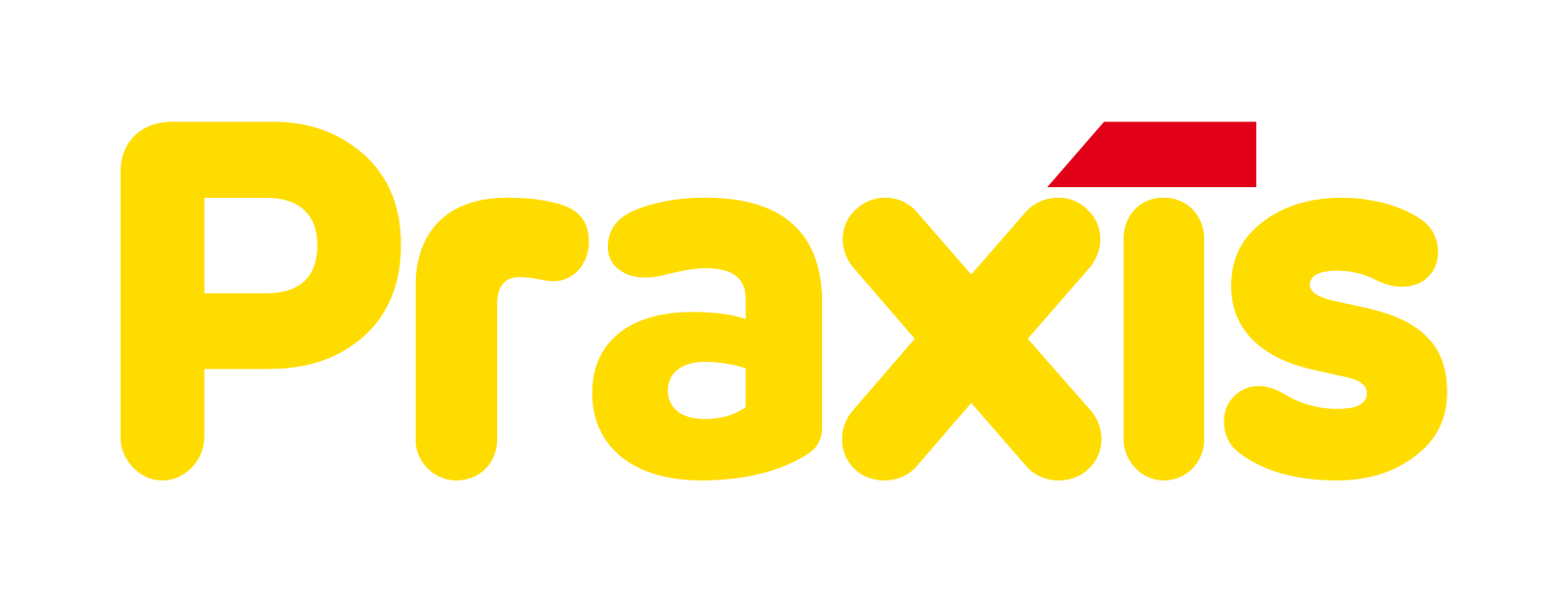Practical answers to specific training needs
In the future, we will use FLOWSPARKS to focus more on video and infographics so that the information from our digital modules is readily available.


The Dutch company Praxis, together with the Belgian company Brico and BricoPlanit, forms the parent company Maxeda DIY Group. This is the largest DIY group in the Benelux with eight private brands and more than 7,000 employees. Praxis, Brico and BricoPlanit welcome over 1.5 million visitors every week to 339 stores and franchises.
There are three types of Praxis stores in the Netherlands: Praxis City, Praxis and Praxis Mega. The names speak for themselves. With franchise stores added, that’s 190 stores, representing 3,500 employees. Together with her five colleagues, Sophie Hendrix, Manager of Learning & Development at Maxeda, is responsible for training and developing all Maxeda employees: both store employees and colleagues working at the service offices in Amsterdam and Brussels.
‘Since the pandemic, the use of FLOWSPARKS has accelerated. We are now creating training courses with suppliers about certain products from our range. There is also an introduction program for Belgian student workers. They are only employed for a short time, but they must quickly learn the basics about house rules, safety, etc. FLOWSPARKS is the ideal tool for this.’
The demand for certain training courses comes from everyone in the organization. For example, if colleagues have trouble with the ordering system, FLOWSPARKS allows us to quickly provide an adequate answer. But it is also the purchasing department that decides that employees must be aware of a new product and asks us to help them with this. Sometimes we also take the initiative when we see opportunities or needs.’
Of course, the people of Learning & Development do not have all the knowledge to create e-Learning modules completely independently and they call on colleagues with the necessary professional knowledge. ‘Once we have received the necessary information from them, we create our digital files or ask the FLOWSPARKS team to help us with this. In the long term, we would like the users to create e-Learning themselves. But we’re not there yet.’
Praxis offers learning programs and learning activities to support people as much as possible in their job performance and personal development.
‘We have four pillars,’ says Hendrix. ‘Safety is the first. This concerns, for example, the correct use of a forklift truck or other means of transport, first aid and the safe storage of products in the warehouse. Professionalism and customer-friendliness are the second and third. These pillars teach employees how to advise customers correctly and professionally. This involves both product knowledge and dealing with customers and knowledge of DIY. The last pillar is leadership: how do you provide leadership, how do you determine the direction employees take and how do you coach them in their development?’
Praxis has been working with FLOWSPARKS since 2019. ‘Before we used FLOWSPARKS, some of our training courses were already online. We used a tool that was quite complicated,’ says Hendrix. ‘As a result, there was a barrier to creating e-Learning. We wanted to focus more on digital learning, but that would never have been a success with that tool. So we went in search of a user-friendly tool. Through the Belgian Brico colleagues who already knew FLOWSPARKS, we started discussions with FLOWSPARKS.
In the future, we will use FLOWSPARKS to focus more on video and infographics so that the information from our digital modules is readily available.
Praxis then started using FLOWSPARKS quite quickly. ‘We’ve started digitizing the programs about our range: what does it consist of, what usage tips can you give, how do you best advise customers, etc. We did this using the Smart Program THEMEPAGE and the Learning Formats Smartmagazine, Smartpages, Onthespot, Storywise, etc.’
Once these digital learning modules were finalized, Hendrix and her colleagues created introduction programs for the new store employees. A presentation of the company and the stores, with modules on safety and customer focus.
These modules will be processed by new colleagues in the first few weeks. Praxis opts for a hybrid approach in which theory is given digitally, but employees are also given printed worksheets to work with in the stores themselves. For example, they need to create a map of the store to learn what is where. They have crib notes for customer-friendliness, interview questions for a colleague, etc. Employees are instructed to walk around the store and record unsafe situations, if there are any. ‘This is done in consultation with the store manager who makes a schedule and keeps track of how far his people are with the program,’ Hendrix said.
Praxis employees who use FLOWSPARKS are positive. ‘It looks good and it’s fun and easy to work with. Personally, I like the fact that you can easily and quickly create modules in multiple languages. This is usually a lot more complex with other tools. And what’s nice is: FLOWSPARKS is developing rapidly. New features and handy templates are constantly being added, which means that you can do more and more with them and there is more variety in the range available.’
For Hendrix it is clear that Praxis will keep using FLOWSPARKS. ‘We are going to focus more on microlearning, so that employees can use it quickly and easily on the work floor. Preferably also personalized, based on their level of knowledge. At the moment our e-Learning modules are still quite textual, but we will evolve more towards video and infographics so that the information is readily available,’ she says. ‘This should also lower the barrier for sharing knowledge. People are more likely to make a video in the workplace than to get their pens out.’